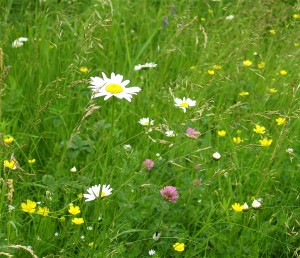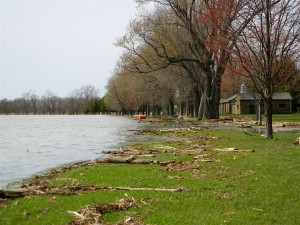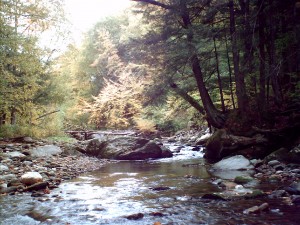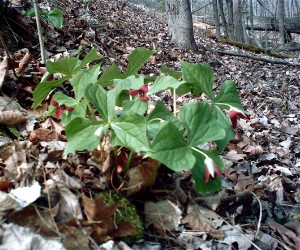Jun 12 2011
Summer Bloom
 The wildflowers that grow along roads and in fallow fields are easy to ignore. It is the warm season, after all, and we are exuberant with baseball, beaches and a vast array of other summertime activities. But the bloom has moved now from canopied forests to open places awash in sunlight. Now the green is punctuated with tiny splashes of yellow, pink, blue and a dozen other dazzling hues.
The wildflowers that grow along roads and in fallow fields are easy to ignore. It is the warm season, after all, and we are exuberant with baseball, beaches and a vast array of other summertime activities. But the bloom has moved now from canopied forests to open places awash in sunlight. Now the green is punctuated with tiny splashes of yellow, pink, blue and a dozen other dazzling hues.
It’s a subtle beauty to be sure – the stuff of impromptu bouquets given to mothers by their children. One can walk along a recreational trail for twenty minutes before really noticing them. But see one and hundreds suddenly appear, no, thousands. Thick patches of birdsfoot trefoil and clover at one’s feet, bright yellow and orange hawkweed here and there, tangles of dewberry, and the ubiquitous buttercup – they all vie for our attention. Summer’s bright, happy palette is everywhere, half-hidden in timothy bent over by a steady, warm breeze. Bladderwort hugs the trail’s gravely edges. Cow vetch lurks in the background. Daisies steal the show.
When I walk in the open this time of year, I marvel at nature’s diversity. The forest is just as fecund as the field, but the field flaunts it. The untended places drenched with high sun allow plants to go crazy. Ferns, moss and other lifeforms may creep relentlessly across the damp forest floor, but in the meadows biomass explodes. Feel the heat that all these plants generate on a hot day and there’s no doubt in your mind that life pulsates on this planet. Butterflies, dragonflies and countless other insects go about their business in these roofless hothouses. Step into it and you come out covered in pollen and seeds. Yeah, the wild fields are like that in June. And they will only grow more intense as the season progresses.
It is easy to be awed by snow-capped mountains, roiling seas and blazing sunsets, but the power and glory of nature lies in the tiny flowers that we hardly notice at all – the ones whose names we forget or confuse with others, the ones that can only be appreciated with a magnifying glass. Herein lies irrefutable proof that the wild will persist no matter what. Herein lies the true genius of the ordered chaos that is Nature. An hourlong walk this time of year reaffirms my pantheism. God is in all things, surely. What other explanation can there possibly be for such overabundance? The fields full of wildflowers echo the chorus sung by billions of stars in the night sky. Both the universe and the world we inhabit are absolutely teeming with possibility.
Comments Off on Summer Bloom




